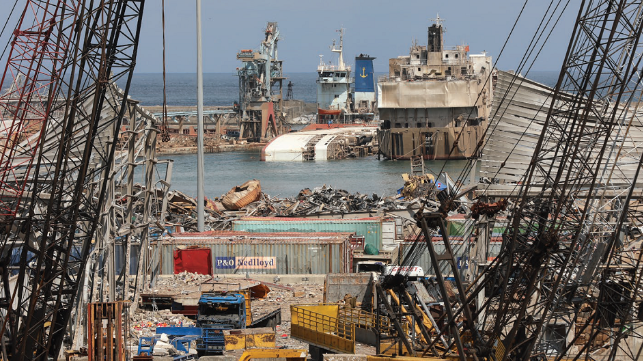World Bank Tallies Billions in Damages From Port of Beirut Explosion

The World Bank has issued an initial damage assessment for the total impact of the explosion at the Port of Beirut on August 4, and the total runs well into the billions of dollars. The blast devastated much of the city's waterfront, including residential districts, warehousing areas, the country's primary grain silo and nine hospitals.
As of Sunday, the official death toll from the explosion stood at 190; three remain missing and an estimated 6,500 sustained injuries. According to the World Bank, the blast also cost Beirut billions in infrastructure costs and lost economic activity. Damages stand at $3.8-4.6 billion, concentrated in housing and cultural heritage assets. Losses are about $2.9-3.5 billion, with housing being hit hardest again. The priority needs for recovery and reconstruction come to about $2 billion, concentrated in the housing and transport sectors.
At the port complex, the World Bank's team catalogued seven shipwrecks, along with a wide range of damaged infrastructure assets. The total damage is assessed at up to $350 million and total losses up to $700 million. The damaged assets include the 120,000-ton grain silo, which contained 15,000 tons of grain; 200 meters of quays; navigation channels and berths; the Customs and Ministry of Agriculture buildings; warehouses with a total area of about 160,000 square meters; cargo handling equipment; 373 full containers; and the port's sanitary-phytosanitary facilities.
However, before moving ahead with a full rebuilding program, the World Bank assessment team called for institutional reforms in Lebanon's ports sector, including private-sector operations and increased administrative transparency.
Lebanon appoints new prime minister

that matters most
Get the latest maritime news delivered to your inbox daily.
Lebanon's top political leadership (excepting its president) resigned en masse in the weeks after the explosion, but all outgoing ministers have continued on in a caretaker capacity. On Monday, Lebanese diplomat Mustapha Adib took over as prime minister-designate, and he will take on the task of forming a new government to replace the current cabinet.
Hopes are high for Adib's appointment, as he has called for an administration of experienced experts rather than well-connected politicians. He also supports negotiations with the IMF, which is demanding deep reform to the nation's banking system and finances, according to Al Jazeera.
